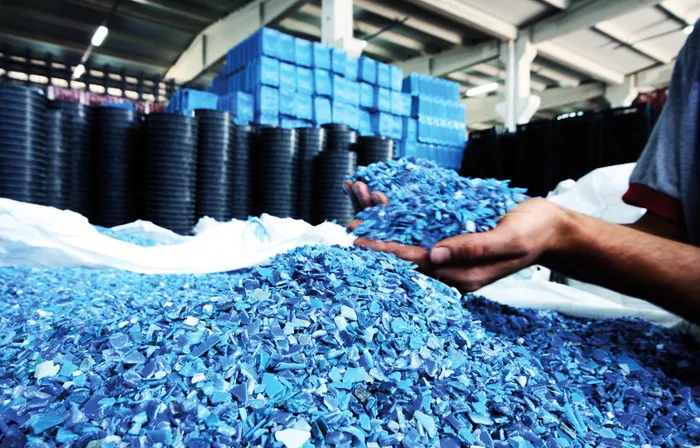SA launches innovative project to tackle plastic pollution in food and beverage sector

Part of the project looks at using more recycled plastic for products so less virgin plastic is introduced into the goods chain.
Image: Supplied
In a landmark move to combat one of South Africa’s most pressing environmental challenges, a new initiative has been unveiled to tackle plastic pollution stemming from the food and beverage sector.
The “Plastic Reboot Project: Circular Solutions for Plastic Pollution in South Africa” aims to revamp the plastic packaging landscape by focusing on upstream and midstream interventions, ushering in a more sustainable and equitable circular economy.
The multi-year project represents a critical effort to reduce plastic waste at its source, fundamentally transforming how plastic is designed, used, and managed throughout the packaging value chain. The initiative's focused approach aims to instigate a systems-level shift within the plastics sector, contributing to broader environmental sustainability and economic integrity.
Central to the project are its upstream and midstream strategies:
Upstream: The initiative will seek to eliminate unnecessary and problematic plastic products, encourage shifts to sustainable alternatives, and promote the use of recycled plastics as feedstock, significantly reducing reliance on virgin plastic.
Midstream: Innovations will be supported to enhance the lifespan of necessary products by creating reusable and recyclable alternatives. Furthermore, the project aims to reduce consumer consumption of short-lived plastic products.
While the project's downstream activities, such as recycling and waste management, are not directly funded, the upstream and midstream interventions are designed to complement and enhance existing initiatives that address these critical areas.
The project is backed by the Global Environment Facility (GEF), with UNICEF serving as the implementation agency alongside local partners such as the Department of Forestry, Fisheries and the Environment (DFFE), WWF South Africa, the Council for Scientific and Industrial Research (CSIR), and GreenCape.
Levy Maduse, Acting UNIDO Representative, said the project is part of a GEF-funded global programme across 15 countries. "With strong national partners in South Africa, the project is poised to drive innovative actions within the food and beverage sector while contributing to global environmental benefits, including reduced greenhouse gas emissions.”
Lorren de Kock, Senior Technical Specialist at WWF South Africa, emphasised the importance of a holistic approach to plastic pollution: “Plastic pollution is not just a waste problem; it requires a systemic redesign. This project positions South Africa at the forefront of circular innovation in plastics.”
Anton Nahman, Principal Environmental Economist at CSIR, echoed this sentiment, stressing the need for a comprehensive strategy that addresses the root causes of plastic pollution rather than merely focusing on downstream solutions.
Claire Pengelly, Head of Strategic Partnerships at GreenCape, noted that the initiative forms part of a broader collaboration within the SA Plastics Pact, which unites various stakeholders to eliminate problematic plastics and enhance sustainable packaging. “Together, we will unlock innovation, create jobs and investment, and help shape policies necessary for South Africa’s transition to a circular plastics economy,” she said.